توضیحات
ABSTRACT
The development of smart cities is becoming more and more based on knowledge management (KM) frameworks. This leads to new managerial challenges, which reflect the complexity of KM governance and processes issues of smart city projects as well as the need to manage knowledge that originates both within and beyond projects’ boundaries. However, in-depth research on the development of smart cities from a managerial and KM perspective has remained scant. In detail, although universities are deemed to be responsible for the competitiveness and superiority of knowledge-based ecosystems, like smart city projects, the different roles they play in such projects when dealing with KM governance and processes issues are still understudied. Therefore, by conducting an exploratory case study of 20 smart city projects, this paper aims to scrutinize how universities manage the KM governance issue when internal knowledge is used, the KM governance issue when external knowledge is used, the KM processes issue when internal knowledge is used, and the KM processes issue when external knowledge is used. Results reveal that universities act as knowledge intermediaries, knowledge gatekeepers, knowledge providers, and knowledge evaluators.
INTRODUCTION
Following the principles of the knowledge economy, the Organization for Economic Cooperation and Development (OECD) andthe European Union (EU), among others, have adopted knowledge management (KM) frameworks in their strategic directions for global and local development (Angelidou, 2015). This paradigm shift in strategic planning as strongly influenced urban development, with the result that knowledge is now conceived as the core component that makes cities smart (Bakici et al., 2013; Hollands, 2008). Accordingly, we hereafter refer to smart cities as “the result of knowledge-intensive and creative strategies aiming at enhancing the socio-economic, ecological, logistic and competitive performance of cities” (Kourtit and Nijkamp, 2012:3). In turn, the rationale underlying the so-called knowledge-based urban development (KBUD) approach is becoming more and more prevalent for the design and implementation of smart city projects (e.g. Yigitcanlar, 2010; Yigitcanlar and Velibeyoglu, 2008).
چکیده
توسعه شهرهای هوشمند در حال تبدیل شدن بیشتر بر اساس چارچوب مدیریت دانش (KM) است. این منجر به چالش های مدیریتی جدیدی می شود که پیچیدگی مدیریت ادراکات مدیریت دانش را بررسی می کند و مسائل مربوط به پروژه های شهر هوشمند را مدیریت می کند و همچنین نیاز به مدیریت دانش هایی را که در داخل و خارج از مرزهای پروژه ایجاد می شود، مدیریت می کند. با این حال، تحقیقات جامع در مورد توسعه شهرهای هوشمند از منظر مدیریتی و مدیریت دانش، کم و بیش باقی مانده است. به طور دقیق، گرچه دانشگاه ها مسئول رقابت و برتری اکوسیستم های مبتنی بر دانش، مانند پروژه های شهر هوشمند هستند، نقش های مختلفی که در چنین پروژه هایی در برخورد با مدیریت حکومتداری و مدیریت فرایندهای مدون نقش دارند، هنوز مورد بررسی قرار گرفته اند. بنابراین، با انجام یک مطالعه اکتشافی 20 پروژه شهر هوشمند، این مقاله با هدف بررسی دقیق نحوه مدیریت دانشگاه در زمینه مدیریت حاکمیت مدیریت دانش در هنگام استفاده از دانش درونی، مسئله مدیریت حکومتداری در هنگام استفاده از دانش خارجی، فرایند مدیریت دانش، هنگامی که دانش درونی استفاده می شود و KM هنگامی که دانش خارجی مورد استفاده قرار می گیرد، روند را بررسی می کند. نتایج نشان می دهد که دانشگاه ها به عنوان واسطه های دانش، دروازه بانان دانش، ارائه دهندگان دانش و ارزیابی دانش عمل می کنند.
مقدمه
به دنبال اصول اقتصاد دانش، سازمان همکاری های اقتصادی و توسعه (OECD) و اتحادیه اروپا (اتحادیه اروپا)، در میان دیگران، چارچوب مدیریت دانش (KM) را در جهت راهبرد توسعه جهانی و محلی خود (Angelidou، 2015) . این پارادایم تغییر در برنامه ریزی استراتژیک به شدت تحت تاثیر توسعه شهری، با در نتیجه، دانش در حال حاضر به عنوان جزء اصلی است که شهرها را هوشمند می سازد (Bakici et al.، 2013؛ Hollands، 2008). بر این اساس، ما در نهایت به شهرهای هوشمند به عنوان “نتیجه استراتژی های دانش و استراتژی خلاقانه با هدف ارتقای عملکرد اجتماعی-اقتصادی، زیست محیطی، لجستیکی و رقابتی شهرها اشاره می کنیم” (Kourtit and Nijkamp، 2012: 3). به نوبه خود، منطق مبتنی بر به اصطلاح توسعه دانش مبتنی بر توسعه شهری (KBUD) برای طراحی و پیاده سازی پروژه های شهر هوشمند بیشتر شده است (مثلا Yigitcanlar، 2010؛ Yigitcanlar and Velibeyoglu، 2008).
Year: 2018
Publisher : ELSEVIER
By : Lorenzo Ardito, Alberto Ferraris, Antonio Messeni Petruzzelli, Stefano Bresciani ,Manlio Del Giudice
File Information: English Language/ 100 Page / size: 298 KB
سال : 1396
ناشر : ELSEVIER
کاری از : لورنزو آردیتو، آلبرتو فراریس، آنتونیو Messeni Petruzzelli، استفانو بورسیانی، مانلیو دل ژیودیس
اطلاعات فایل : زبان انگلیسی / 10 صفحه / حجم : KB 298


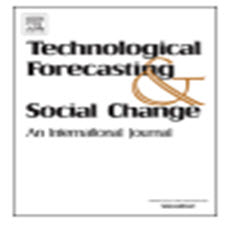


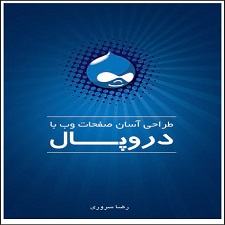
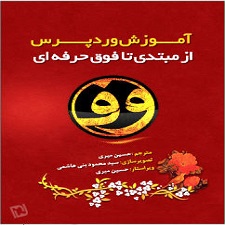
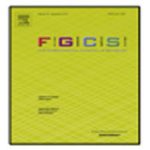
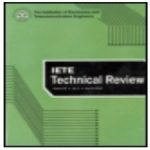
نقد و بررسیها
هنوز بررسیای ثبت نشده است.